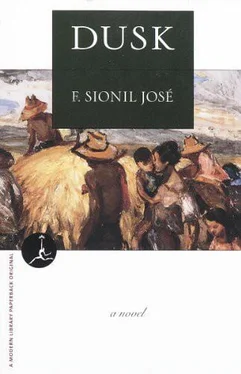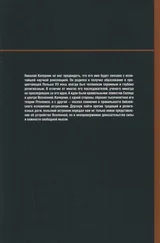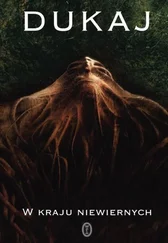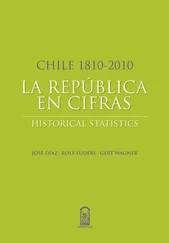The work was not difficult; most of the time, it was simply copying neatly what the Cripple had written and corrected. Istak had some difficulty at first — he had not written with a pen for a long time, and the nib often flattened out as he pressed on it too hard. After two days it all came back — the old agility, the smoothness. Though his back ached from the hours hunched before the writing table, it was not the body that was really fatigued but the mind, for everything that the Cripple wrote, he absorbed. Writing provoked thinking as well, and it had been a long, long time since Istak was made to think as he was doing now. He marveled at the Cripple’s tenacity and how, despite his infirmity, he could still write so much, even now that he was no longer in power and the war was being lost. The Americans were getting closer and very soon they would reach Pangasinan.
It was the Cripple’s view on the Church, on Bishop Aglipay, whom he wanted to be the undisputed leader of the Filipino priests, that bothered Istak most. Mabini’s belief in God was formidable and steadfast, but he thought little of the Roman Church as an institution. The Cripple’s letters and resolutions asked instead for the creation of a Filipino Church, serving not Rome but the Filipino people.
Shadowy figures stole into the house and talked with Don Jacinto, who then took them to the Cripple’s room. They did not tarry. Their faces were grim and melancholy when they arrived, but when they left it seemed as if they were recipients of indescribable grace, their gait quicker, the sorrow banished from their faces. Surely, the Cripple held some secret talisman as well.
Istak was justly proud of his penmanship, which he had developed through the years. Though he no longer gave his capital letters fancy loops, he still decorated them with a curl or two. It was, after all, with this penmanship that the trained writer was recognized; the more elegant the calligraphy, the better it spoke of the writer’s skill.
The Cripple was meticulous; he said the loops occupied too much space and interfered with the reading because they were distractive; the penmanship drew attention to itself and not to what was being said.
“Remember, Eustaquio, these are curtains to a window. And the words are themselves the window. First, the writing must be neat but not ornate, for if I wanted beautiful letters, then I would have nothing but a page of the alphabet in ornate lettering. The Chinese consider calligraphy an art form and it can be beautiful, but attention, as tradition demands, is drawn to the shape of the characters themselves. Great calligraphers are, therefore, great poets, too. But you are not Chinese. Words should not hinder the expression of thought unless one is expressing poetry. I am not writing poetry; I am writing to convince people of the validity of our struggle, its righteousness, and the utter fallacy and hypocrisy of the Americans in saying we are not capable of self-government.”
For all his wisdom, Padre Jose had never spoken to him like this and with such lucidity. How he would have rewritten now that pompous journal which he had started in Cabugaw, influenced as he was by the classics and the Latin poets; he was but twenty-one then, and Padre Jose — bless him — had said that even one so young as he had already shown wisdom by being concerned not only with living but with what made life bearable. How apt, how beautiful it had all sounded. He was shut up in the convent, assured of his meals and safe from conscription in the public works in Vigan and elsewhere, yet he could see the inequities heaped upon his people, the drudgery that warped the lives of his own kin in Po-on. He saw, but could not bring himself to loathe the old priest, just as he could not hate the Americans the way the Cripple did. He had heard in frightened whispers what they had done to Filipino soldiers, the women they chanced upon, these big men with red hair and red beards, pillaging the villages, but he had seen not a drop of blood nor heard one gunshot.
“They have done all these, Eustaquio.”
He brought to mind what had happened to Po-on, how he was shot and left to die, but there was a reason.
“There is no need for reason in war,” the Cripple said with a sneer. “Passion rules. And yet, for those of us who can and should think, we must always remind ourselves that if we lose, it will not be only our lives — which have become inconsequential — but those of our future generations. We have so many structures to build so that we will be strong — for one, a church that is truly ours. We are a divided citizenry. We have ambitious leaders who think only of themselves, and an army in retreat. But not everything is lost. Our men can continue fighting even though they may no longer be in uniform. They will be indistinguishable from the village people in the daytime and at night, whenever the opportunity comes, they will strike. Every Filipino becomes suspect then.”
In a month, the Cripple had regained his health and Istak returned to his bangcag . The rains lengthened, the rice grew, and by October, the first harvest was in. Now, the rains no longer came in nine-day torrents; the sun shone and the air was thick with the scent of newly cut hay. The moon came out silvery and full. It was on nights like this, lying on the sled in the yard, listening to the children play in the moonlight, their eager voices lifting his spirit, that thoughts bedeviled him. The Cripple still believed in God, but not God as the source of all good. Men could be morally upright not because an omnipresent God meted out punishment to those who strayed, but because men possessed reason. Where did this reason, this conscience come from? Man did not sprout from some empty seed by himself, but through a Supreme Will. And the city which this man builds is the City of God as well; shall it have blood as its foundation — as the native belief held and thus struck fear in the young — so that it will last for centuries, longer than Rome, for all eternity even? How long can this city last if it is not God who keeps watch over it?
An unblemished November day, the fields caparisoned with gold. He was starting out for his bangcag when Don Jacinto arrived. Had the Cripple’s condition worsened? He had prayed for him more than he had ever done for any of the sick who sought him.
“It is not his health,” Don Jacinto said. “He wants you to go on an errand — something only you can do.”
As he entered the room, the Cripple turned to him, grinning. “Thank you for coming, Eustaquio.”
“At Don Jacinto’s bidding, Apo,” Istak said. The Cripple pointed to a chair. What errand could he do for this man who, with his pen, could squeeze water from stone?
“Have you ever gone back to the Ilokos since you left it, Eustaquio?”
“No, Apo,” Istak said with a shake of the head.
“You told me you know your way across those mountains to the valley. Through the land of the Igorots. You said you were there every year with this old priest. That you even made some friends among the Bagos …”
How well the Cripple remembered! In the late afternoons when he asked Istak up to the azotea to have a merienda of cocoa and galletas , he had asked Istak about his boyhood, how he had learned so much without formal schooling. Istak had reminisced, sometimes with reluctance, for he was uneasy recalling his Spanish mentor.
The Cripple’s mind was a cavernous repository not just of ideas but of facts. He asked Istak about the Igorots — how they reacted to the missionary priests, how he himself felt about the savages that they were, whose homes were decorated with the skulls of their enemies, who regarded the Christian Ilokanos with hatred. Istak was frightened of them at first and that fright had not really left him, even afterward when he saw them again and remembered many of them, not just their villages perched on mountainsides or their well-groomed fields but also their names. There came to mind how the Bagos had attacked their bull-cart train. Would they ever change, would they ever be brothers to us?
Читать дальше












